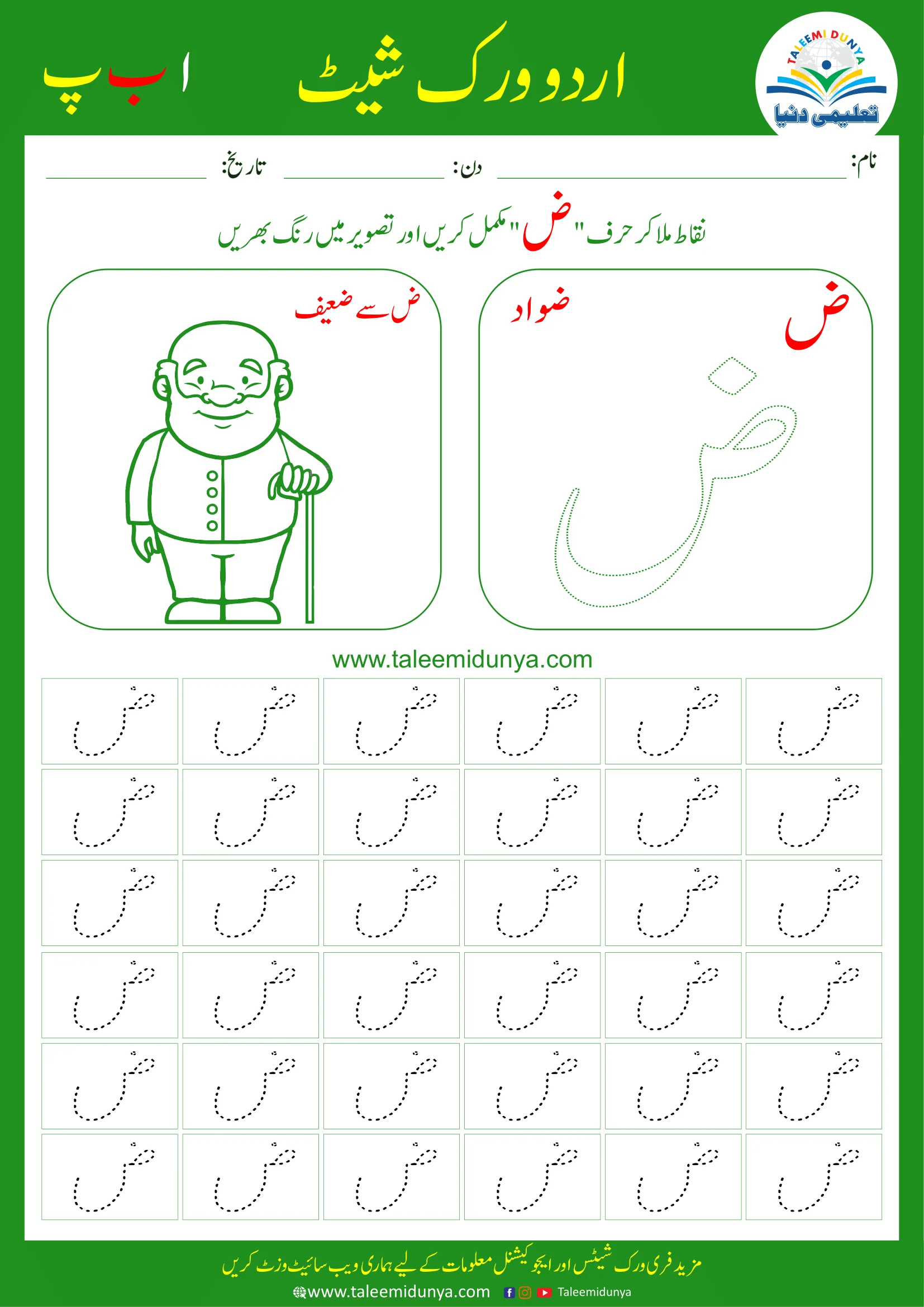Zwad
Zwad Urdu Worksheet
Zwad Urdu Worksheet
In the realm of language learning, the Zwad Urdu Worksheet emerges as a pivotal tool, aiding children and adults alike in mastering the nuances of the Urdu script. These worksheets are meticulously designed to facilitate a comprehensive understanding of the Urdu alphabet, particularly focusing on the Urdu letter Zuad. By incorporating these worksheets into your learning regimen, you can significantly enhance your language skills, making the learning process both engaging and effective.
Introduction to Zwad Urdu Worksheets
The Zwad Urdu Worksheet series offers an array of educational materials focusing on different aspects of the Urdu language. These worksheets help learners trace and write the Urdu letter Zuad, amongst others, providing a structured approach to understanding this beautiful language. As you embark on this linguistic journey, you will find these worksheets invaluable in building a strong foundation in Urdu writing and comprehension.
Benefits of Using Zwad Urdu Worksheets
Utilizing the Zwad Urdu Worksheet offers numerous benefits. Firstly, it provides a systematic way to learn the Urdu alphabet, from the basic letters to more complex forms. Secondly, these worksheets are crafted to cater to different learning styles, ensuring that every learner can find an approach that suits them.
Enhancing Language Skills
One of the primary advantages of using Zwad Urdu Worksheets is their ability to enhance your language skills. By regularly practicing with these worksheets, you will develop a better grasp of the Urdu script, which is essential for effective communication. The repetitive nature of tracing also aids in muscle memory, making writing in Urdu more intuitive.
Interactive Learning Experience
The interactive nature of these worksheets transforms the learning experience into a fun and engaging activity. As you trace the Urdu letter Zuad, you engage multiple senses, reinforcing your learning. This multisensory approach helps in retaining information longer, making the learning process much more effective.
How to Use Zwad Urdu Worksheets Effectively
To make the most of the Zwad Urdu Worksheet, it's crucial to follow a few best practices. Begin by setting a consistent study schedule, dedicating specific times to practice tracing and writing. Use these worksheets alongside other educational resources, such as online tutorials or language apps, to diversify your learning methods. Additionally, involve visual aids and audio resources to complement the worksheets, providing a holistic learning experience.
Start with basic letters and gradually move to complex forms.
Incorporate the use of flashcards for quick revision.
Engage in group study sessions to enhance learning through interaction.
